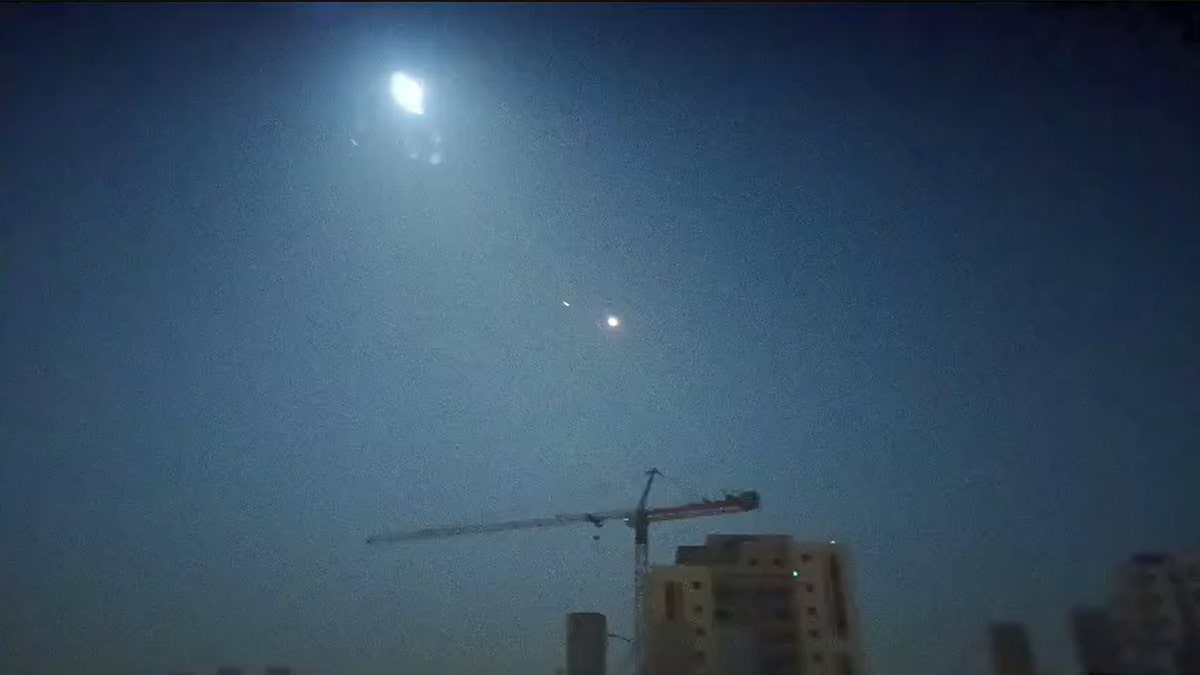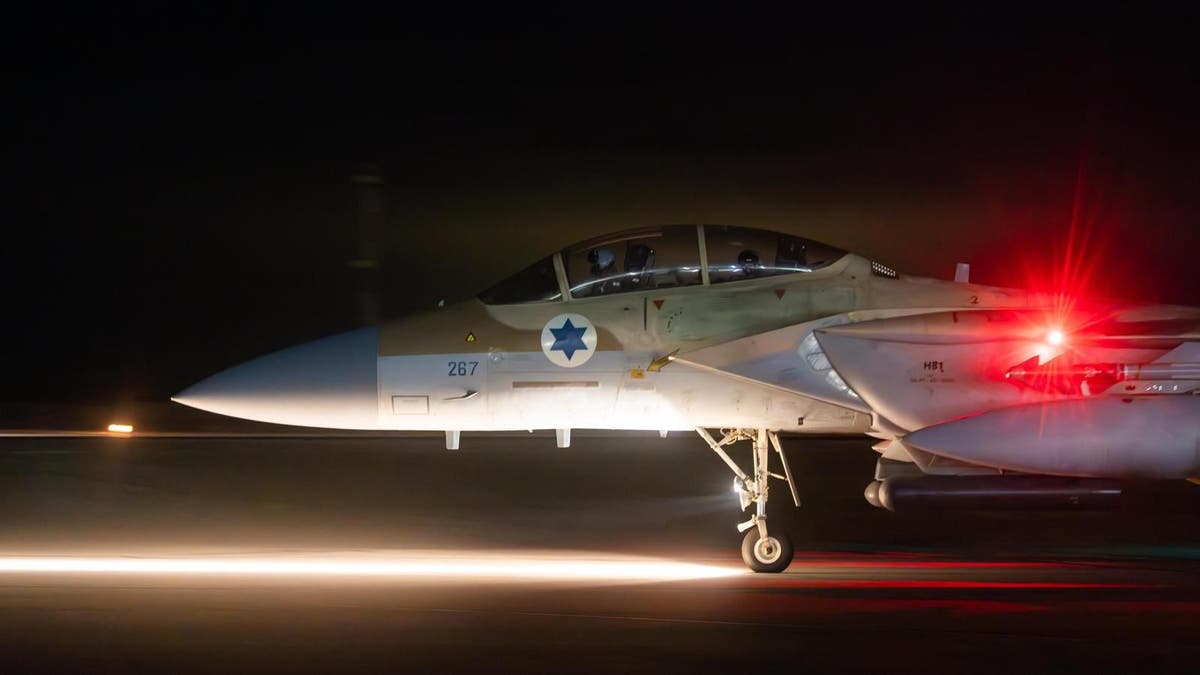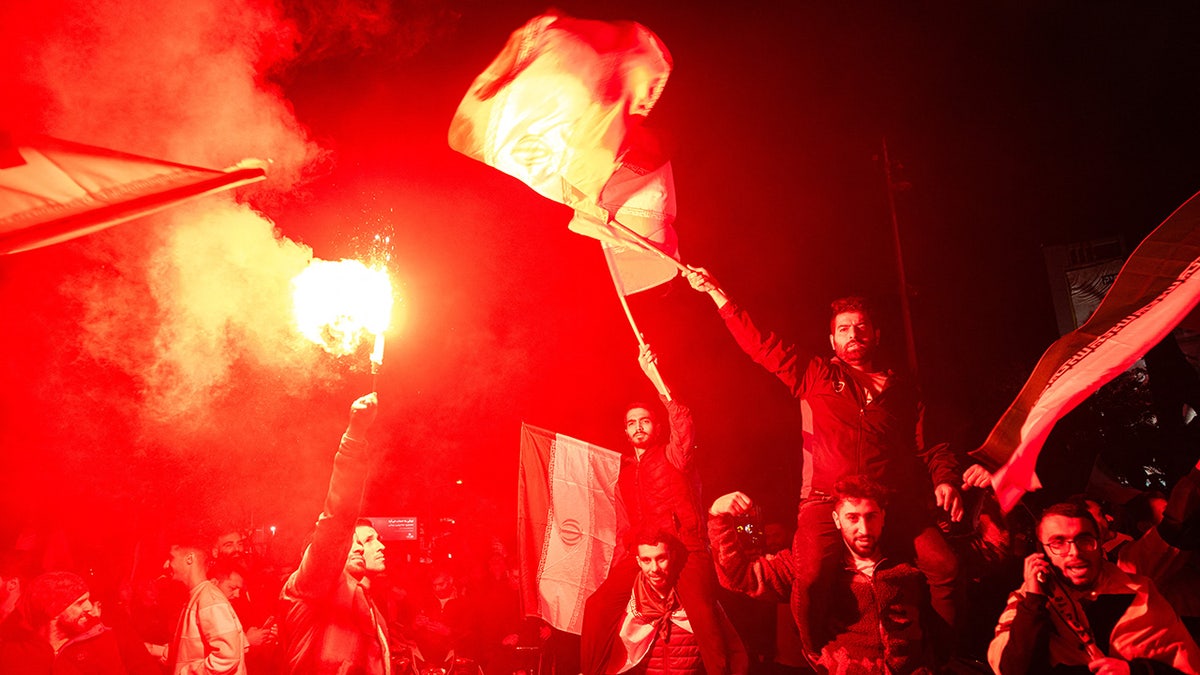Israel’s recent retaliatory strike inside Iran, in response to Tehran’s unprecedented missile and drone assault on Israel proper the weekend before, was a brilliant work of what practitioners of intelligence statecraft call “strategic signaling.”
The message delivered to the ayatollahs on April 19 by the Jewish state was so daring, direct and unequivocal that it will likely compel Iran to abandon its new bold tactics of direct kinetic warfare. Jerusalem has enforced its red lines with Iran, making a successful kinetic counterattack by Iran inside Israel unlikely. Here’s why.
Benjamin Netanyahu’s government has demonstrated to the Iranian regime that its skillfulness at bombastic rhetoric and ability to gin up anti-Israel fervor among various groups across the globe doesn’t compensate for its military’s ineptness at conventional warfare.
IRAN’S ‘NUCLEAR ENERGY MOUNTAIN’ IS ‘FULLY SAFE’ AFTER ISRAELI STRIKE: STATE MEDIA
There was a lot of drama unfolding in multiple corners of the world, with the usual theatrics coming out of Tehran. The Iranian Parliament’s National Security Committee spokesman Abolfazl Amoue warned a day before Israel’s retaliation that Iran will use “weapons that we have never used” to attack Israel. Iran’s President Ebrahim Raisi threatened a “painful and severe” response if Israel takes even the “slightest action.”
Doubling down on these warnings, Raisi, speaking at Iran’s annual army parade, issued a threat to launch a “massive and harsh” retaliation if Israel launches even a “tiniest attack.” And Iran’s Deputy Foreign Minister Ali Bagheri Kani vowed that the speed of response from Iran, if Israel strikes back, “will be less than a few seconds.”
The usual anti-Israel suspects were ratcheting up fear-mongering rhetoric, in an attempt to put pressure on Israel simply to “eat” the provocative Iranian attack, in order to avoid further escalation. “The Middle East is on the brink,” U.N. Secretary-General António Guterres told a Security Council meeting in response to the Iranian strikes. “The people of the region are confronting a real danger of a devastating full-scale conflict,” he said, calling for maximum restraint.
Russia’s Vladimir Putin warned against a “new round of confrontation fraught with catastrophic consequences for the entire region.” Media outlets across the world ran headlines that evoked fears of open warfare breaking out between Israel and Iran, dangers of conflict escalation into a regional war that could drag the United States in.
REPORTS OF ISRAEL’S RETALIATORY STRIKES AGAINST IRAN PROMPT REACTIONS FROM LAWMAKERS: ‘RIGHT TO DEFEND ITSELF’

Following Raisi’s telephone call with Putin on April 17, fear spread from the doomsayers to the international “expert” class. U.S., European and Middle Eastern intelligence officials and weapons experts privately expressed concerns, according to major U.S. media outlets, about Russia’s pledge to supply Iran with advanced fighter jets and air defense technology that are capable of destroying stealth fighter jets operated by the U.S. and Israel. Even President Biden reportedly urged Prime Minister Netanyahu to “take the win” after Israel and its allies intercepted most of the missiles launched during Iran’s attack.
And then came the Israeli counterstrike. Kinetic. Precise, yet calibrated, using measured force. Stealth technology was likely used in what appeared to be a covert action, combining conventional warfare and special operations. The ayatollahs didn’t know what hit them.
The Israeli strike took out Iranian air-defense missile batteries in Ishafan, rendering them inoperable. The choice of target – located near the Natanz enrichment facility that is critical to Tehran’s nuclear program – was deliberate.

The Israelis went after the very systems that are designed to prevent such attacks. It was, in Western military strategy parlance, a shot across the bow. And the message to Iran was clear – knock it off, or we will decimate the very crown jewel of your war-fighting machine – the nearly operational nuclear capability. Iran has played its nuclear card as a psychological weapon to intimidate the region and the West and, most importantly, to manipulate Washington into giving the regime billions of dollars and other concessions.
Compare Israel’s limited albeit strategically commanding strike with that of Iranian airstrikes on Israel on April 13. Out of about 320 drones, cruise missiles and ballistic missiles, only 1% made it through combined Israeli, American, Jordanian and Saudi air defenses. The IDF’s spokesman, Rear Adm. Daniel Hagari, called it “a very significant strategic success,” and it was 99% ineffective for Iran. It was a vivid display of impotence of the Iranian combat force.

It is no wonder that Tehran played down the Israeli counterstrike and almost immediately declared that it has no plans to respond. Shortly after Israel’s limited but highly effective strike, the Iranian foreign minister, Hossein Amirabdollahian, speaking in New York, where he was attending a U.N. Security Council session, stated that Iran would not escalate conflict. He belittled Israeli weapons as ‘toys that our children play with” without acknowledging that the attacks came from Israel.
Iran is considered by the U.S. intelligence community to be one of the top four threats to the United States. The other three are China, Russia and North Korea. The 2024 Annual Threat assessment issued by the Office of the Director of National Intelligence, characterized Iran’s “hybrid approach to warfare – using both conventional and unconventional capabilities” – as posing a “threat to U.S. interests in the region for the foreseeable future.” The report also noted that Iran’s ballistic missile programs have the largest inventory in the region, and highlighted that Tehran is putting emphasis on improving the accuracy, lethality and reliability of its missiles.
While the threat posed by Iran cannot be underestimated, it is more of an asymmetric rather than conventional nature. For instance, Tehran has been developing clandestine networks inside the United States for more than a decade, with the goal of kidnapping, assassinating and otherwise harming high-level government officials and law enforcement and security personnel. The Iranian regime is now agitating the anti-Israel movement that is raging at universities across America.
But when it comes to conventional warfare, Israel clearly has demonstrated to the world that the Iranian military is not a match for it, and certainly not for the U.S. military.
CLICK HERE TO READ MORE FROM REBEKAH KOFFLER
Read the full article here

